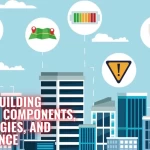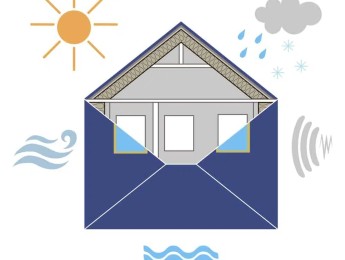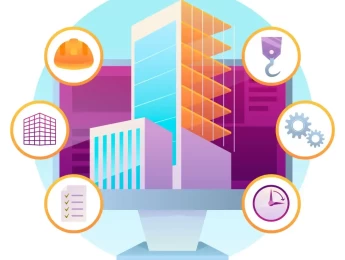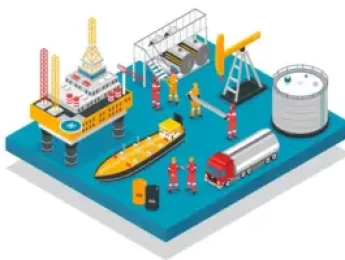Effective management and maintenance of building services are paramount to ensuring a structure's functionality, safety, and longevity. This encompasses a range of activities, including regular inspections, routine maintenance, and timely repairs.
Implementing a proactive maintenance schedule allows for identifying potential issues before they escalate, thereby minimising disruptions and reducing overall operational costs. Fostering clear communication channels between facility managers, maintenance personnel, and occupants facilitates swift resolution of issues and promotes a collaborative approach to building management.
Efficient building service management involves using technology and monitoring systems to optimise energy usage, enhance performance, and improve occupant comfort. Adhering to relevant regulations and standards is also imperative to uphold safety and compliance within the building.
As a Manager, a comprehensive strategy that integrates proactive maintenance, technological advancements, regulatory compliance, and effective communication is essential for successfully managing and maintaining building services.
Upon completion of this course, participants will be able to:
- Understand the significance of establishing service systems to enhance property performance.
- Acknowledge the diverse competencies needed for various maintenance duties and their regularity.
- Uncover prevalent and crucial components of building services that require upkeep.
- Put occupant comfort, contentment, and welfare first.
- Foresee value and bolster occupant business prosperity.
- Enhance health and safety protocols.
- Reduce operational expenditures, energy consumption, carbon footprints, and ecological footprints.
- Maximise the equilibrium between cost and value.
- Offer methodologies for ongoing enhancement and sustainable functioning for stakeholder engagement.
This course is designed for anyone responsible for managing building maintenance projects. It would be most beneficial for:
- Construction Business Owners
- Facilities Managers
- Site Managers
- Building Managers
- Property Professionals
- Real Estate Agents
- IT & Business Control Officers
- Risk Assessors
- Site Planners
- Asset Managers
- Change & Control Managers
This course uses a variety of adult learning styles to aid full understanding and comprehension. Participants will view interactive presentations to discuss the requirements of various building maintenance and management types.
They will work through group risk assessments for different building types and understand how to manage and mitigate issues as they occur. They will also work together to review financial case studies of building management better to equip the facilities and sustainability of their own building.
Day 5 of each course is reserved for a Q&A session, which may occur off-site. For 10-day courses, this also applies to day 10
Section 1: Building Services Strategic Framework
- Principles of strategic planning in building services.
- Energy management and sustainability in building services.
- Building regulations and compliance.
- HVAC systems design and operation.
- Electrical systems in buildings.
- Plumbing and water management.
- Fire safety systems.
- Building automation and control systems.
- Project management in building services.
- Risk assessment and mitigation strategies.
- Health and safety considerations in building services.
- Emerging technologies in the field.
Section 2: Asset Planning & Management
- Asset lifecycle management principles.
- Asset inventory and data management.
- Strategic asset planning and decision-making.
- Asset performance measurement and evaluation.
- Risk management in asset planning and management.
- Maintenance strategies and scheduling.
- Asset valuation and financial analysis.
- Regulatory compliance and standards in asset management.
- Information technology in asset management.
- Sustainable asset management practices.
- Asset disposal and replacement strategies.
Section 3: Maintenance & Risk Assessments
- Regulatory requirements for maintenance and risk assessments.
- Asset condition monitoring techniques.
- Maintenance planning and scheduling.
- Failure modes and effects analysis (FMEA).
- Root cause analysis (RCA).
- Performance indicators for maintenance effectiveness.
- Health and safety considerations in maintenance activities.
- Environmental risk assessments.
Section 4: Building Maintenance Standards
- SFG20.
- Legislation and regulations governing building maintenance.
- Industry standards and best practices.
- Maintenance planning and scheduling according to standards.
- Health and safety considerations in building maintenance.
- Quality assurance and compliance with standards.
- Building inspection protocols and procedures.
- Maintenance documentation and record-keeping requirements.
- Environmental sustainability in building maintenance.
Section 5: Business Systems & Sanitation
- Sanitation standards and regulations.
- Integration of sanitation practices into business systems.
- Sanitary design principles for facilities and processes.
- Hazard analysis and critical control points (HACCP) in sanitation.
- Sanitation monitoring and verification procedures.
- Supply chain sanitation management.
Section 6: Outsourcing & Contracting
- Legal considerations in outsourcing and contracting.
- Risk management in outsourcing agreements.
- Negotiation strategies for outsourcing contracts.
- Performance monitoring and management of outsourced services.
- Contractual dispute resolution mechanisms.
- Ethical considerations in outsourcing relationships.
Section 7: Financials & Vendor Management
- CAPEX/OPEX.
- Vendor selection and evaluation criteria.
- Budgeting and cost analysis in vendor management.
- Vendor selection criteria and evaluation methods.
- Contract negotiation and vendor agreements.
- Financial risk assessment and mitigation strategies in vendor management.
- Pricing models and payment terms negotiation.
- Performance metrics and key performance indicators (KPIs) in vendor management.
- Financial auditing and compliance in vendor relationships.
Upon successful completion of this training course, delegates will be awarded a Holistique Training Certificate of Completion. For those who attend and complete the online training course, a Holistique Training e-Certificate will be provided.
Holistique Training Certificates are accredited by the British Assessment Council (BAC) and The CPD Certification Service (CPD), and are certified under ISO 9001, ISO 21001, and ISO 29993 standards.
CPD credits for this course are granted by our Certificates and will be reflected on the Holistique Training Certificate of Completion. In accordance with the standards of The CPD Certification Service, one CPD credit is awarded per hour of course attendance. A maximum of 50 CPD credits can be claimed for any single course we currently offer.
- Course Code IND21-114
- Course Format Classroom, Online,
- Duration 5 days











